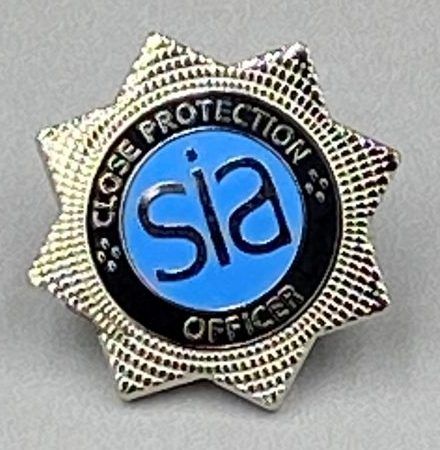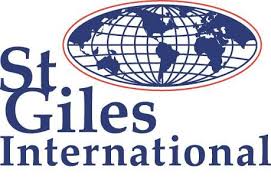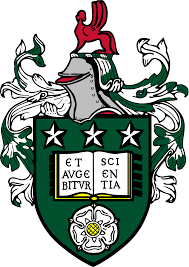
Modern Methods of Conflict Management and The Ability to Adapt
Course ID: 2505127101029EGI
Course Dates : 12/05/25 Course Duration : 5 Studying Day/s Course Location: Dubai, UAE
Language: Bilingual
Course Category: Professional and CPD Training Programs
Course Subcategories: Leadership and Management Excellence
Course Certified By: * Projacs Academy
* Professional Training and CPD Programs
Certification Will Be Issued From :
KSA
Course Fees: £2,946.08
Vat Not Included in the price. VAT may vary depending on the country where the course or workshop is held.
Click to Pay
Date has passed please contact us Sales@e-s-hub.com
Course Information
Introduction
Conflict is an inevitable aspect of both professional and personal life, manifesting in various forms and at different levels of intensity. The ability to manage conflict effectively is a crucial skill that can greatly influence the success and dynamics of any organization. Modern methods of conflict management focus not only on resolving disputes but also on understanding the root causes of conflict, improving interpersonal communication, and fostering a positive working environment. This course offers a comprehensive approach to conflict management, emphasizing the importance of adaptability and emotional intelligence in addressing and resolving conflicts in contemporary organizational settings.
With an increasing global workforce, diverse teams, and ever-evolving workplace dynamics, conflicts are becoming more complex and varied. The traditional methods of conflict resolution, such as negotiation or mediation, remain important but must now be integrated with modern strategies that incorporate emotional intelligence, cultural awareness, and digital communication. Adapting to these new challenges requires leaders and team members alike to develop the skills to not only resolve conflicts but also transform them into opportunities for growth and collaboration.
This course is designed to equip participants with the latest tools, strategies, and insights necessary to navigate conflict in today’s fast-paced, diverse, and often high-pressure environments. From understanding different conflict styles to learning how to approach conflicts with a solution-oriented mindset, participants will explore a wide range of methodologies that will enable them to lead and contribute to teams in a manner that promotes harmony, productivity, and mutual respect.
A significant aspect of this course is the ability to adapt. Effective conflict management is not a one-size-fits-all solution. The methods that work in one situation may not be applicable in another. Thus, the course emphasizes flexibility in conflict resolution approaches and highlights the importance of assessing each unique situation. The ability to adapt allows individuals to approach conflict with a strategic mindset, leveraging the right combination of techniques to produce the best possible outcome.
The modern methods covered in this course extend beyond the traditional frameworks, incorporating contemporary research on psychological safety, workplace dynamics, and organizational culture. Participants will learn how to navigate conflicts in a way that fosters an inclusive environment where all individuals feel valued and heard. With a focus on long-term conflict prevention rather than just resolution, this course offers a holistic view of conflict management, emphasizing proactive strategies that encourage open dialogue and trust among team members.
In addition to the theoretical foundations, the course provides participants with practical tools and real-world applications. Through case studies, role-playing exercises, and interactive discussions, participants will have the opportunity to apply what they’ve learned in realistic conflict scenarios. This practical approach ensures that participants not only understand the theory behind conflict management but also develop the confidence and competence to implement these strategies effectively in their professional lives.
Objectives
By attending this course, participants will be able to:
Recognize the different types of conflicts that can arise in the workplace and identify their underlying causes.
Apply modern conflict resolution methods, including negotiation, mediation, and collaboration, in various organizational settings.
Utilize emotional intelligence to manage conflict and improve interpersonal communication during stressful situations.
Develop strategies for adapting conflict management techniques to suit different cultural, social, and organizational contexts.
Build resilience and prevent conflicts from escalating by creating an environment that promotes psychological safety and open dialogue.
Use conflict as an opportunity for team growth and organizational development, fostering a collaborative and positive work culture.
Who Should Attend?
This course is ideal for:
Team leaders, managers, and supervisors who need to effectively manage conflict within their teams.
Human resource professionals looking to improve conflict resolution strategies across the organization.
Senior leaders who wish to build and maintain a positive organizational culture that reduces the occurrence of conflicts.
Professionals in customer service, sales, and operations who frequently encounter conflicts with clients, customers, or colleagues.
Individuals interested in developing their emotional intelligence and conflict management skills to further their career advancement.
Training Method
• Pre-assessment
• Live group instruction
• Use of real-world examples, case studies and exercises
• Interactive participation and discussion
• Power point presentation, LCD and flip chart
• Group activities and tests
• Each participant receives a 7” Tablet containing a copy of the presentation, slides and handouts
• Post-assessment
Program Support
This program is supported by:
* Interactive discussions
* Role-play
* Case studies and highlight the techniques available to the participants.
Daily Agenda
The course agenda will be as follows:
• Technical Session 08.30-10.00 am
• Coffee Break 10.00-10.15 am
• Technical Session 10.15-12.15 noon
• Coffee Break 12.15-12.45 pm
• Technical Session 12.45-02.30 pm
• Course Ends 02.30 pm
Course Outlines
Introduction to Conflict Management
Understanding the nature of conflict: Causes and types.
The role of emotions in conflict and how to manage them.
Identifying individual conflict styles and their impact on resolution.
The importance of communication in conflict management.
Day 2:
Modern Conflict Management Methods
Negotiation techniques for conflict resolution.
Mediation as a conflict management tool: When and how to apply it.
The collaborative approach: Building win-win solutions.
The role of leadership in conflict resolution and team dynamics.
Day 3:
Emotional Intelligence and Conflict Resolution
Understanding emotional intelligence and its role in managing conflict.
Active listening and its impact on conflict resolution.
Empathy in conflict management: Putting yourself in others' shoes.
Managing stress and emotions during high-conflict situations.
Day 4:
Adapting to Conflict Situations
Assessing conflict situations and determining the best approach.
Adapting conflict management strategies to suit diverse teams.
Cultural considerations in conflict resolution.
Leveraging conflict for personal and professional growth.
Day 5:
Practical Application and Case Studies
Case studies: Analyzing real-world conflict scenarios.
Role-playing exercises to practice conflict resolution techniques.
Group discussion on key learnings and challenges.
Creating a personal action plan for conflict management in the workplace.



















































